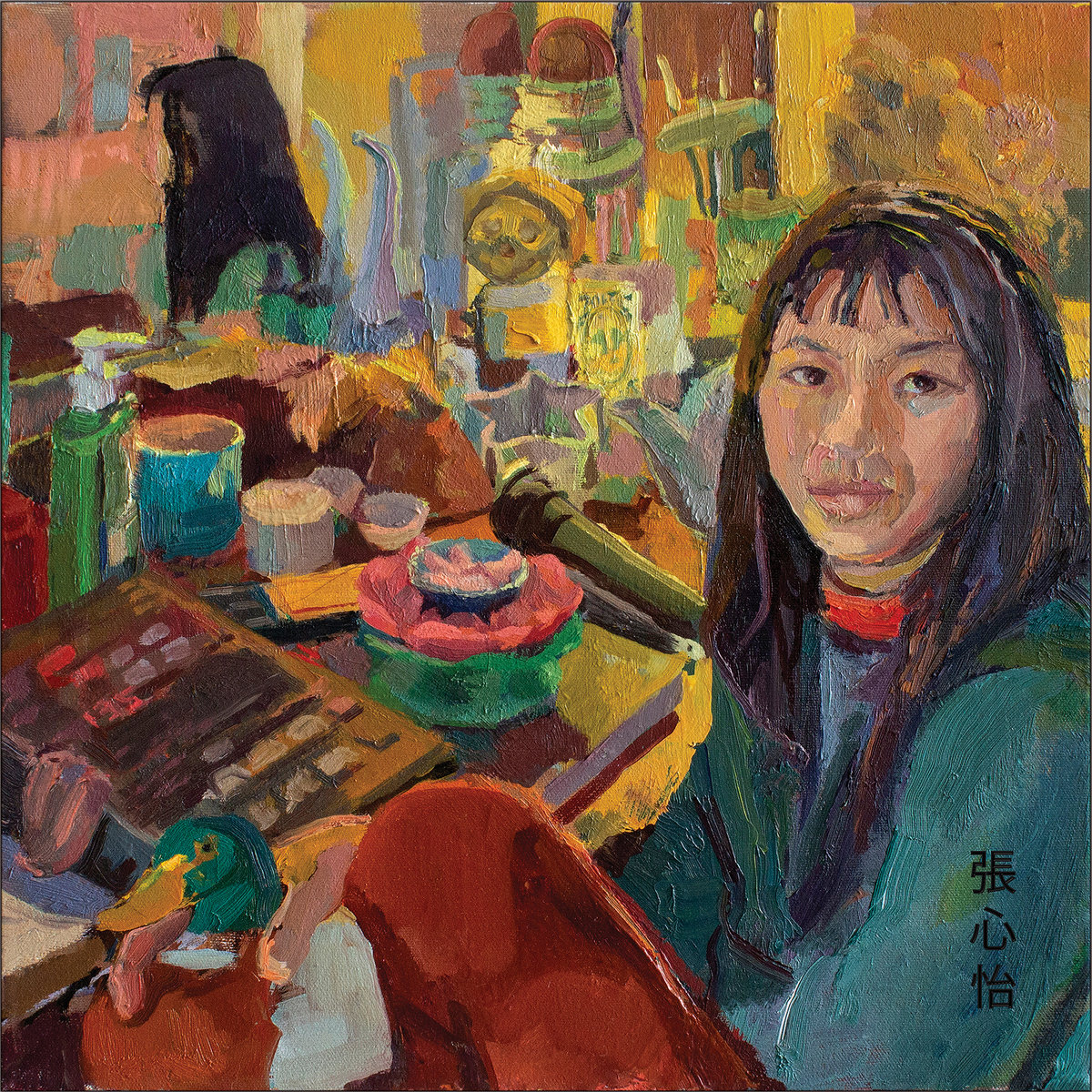On the title track of Frances Chang’s 2022 album support your local nihilist, heartbreak pulls her taut like a rubber band before launching her into the void; she opens the song raging, “You gave up and dropped it / with no sacredness!,” and ends it with the unanswered question, “Is anything real?” As the song careens from the first line to an energetic refrain of “love you / hate me,” its lo-fi guitars bounce off of booming drumbeats and crash cymbals. Then it all collapses into cloudy melancholia as Chang’s anger turns into self-destructiveness and defeat; the guitars move from driving riffs to diffuse, downcast plucks, while the percussion dissipates beneath a misty church organ. In this empty space, she repeats, “I contain everything you want / everything you need,” before concluding, “this thing with you brings out my nihilism.”
Psychedelic Anxiety, her new record, draws from the second half of “support your local nihilist,” but leaves behind the driving energy that precedes it. The record lingers in empty spaces and slack, lollygagging melodies, while its dry, clean production approach renders its austerity with sharp definition.
“Eye Land,” its second track, is a perfect distillation of this feeling. The song’s first ten seconds have a loping, countryish quality. Then it morphs into a folkier, spacier soundscape, with Chang’s multitracked voice enigmatically intoning “today, I’m bathing in music” over a fingerpicked guitar loop. The song shapeshifts again, charging into an energetic guitar riff that’s pure indie rock. Then Chang says, “my blindness wrung you out,” the drums lose their forward momentum, and the song collapses again into another empty void, even spacier than the first.
This cycle repeats once more, revving up and then slowing down again as the guitars hit a wrong note, falling back into the loping tempo from its brief intro. But there’s no catharsis in the return; the song has shifted through so many different places that, by this point, it feels almost unrecognizable. “I think maybe you’re thinking of me too,” Chang sings, but without affection: “It doesn’t feel light / It’s ugly, clawing at my gut.”
The tone shifts that Chang employs on “Eye Land” recur on other songs on Psychedelic Anxiety. “Ya a Mirage” briefly turns into a sludgy headbanger before self-doubt takes over and slows down the tempo, while album opener “Spiral in Houston” evolves from airy bedroom-folk strumming into something more unsettling, with distorted drums and ASMR digital patter rippling through the mix. Chang’s mercurial approach means that even the record’s friendliest track, “Darkside,” is sandwiched between an electronic spoken-word piece (“Sci Fi Soap Opera”) and “First I Was Afraid,” a mournful, woodwind-heavy inversion of “I Will Survive.”
The album’s collage of different textures and moods is impressively, intentionally constructed; it’s to Chang’s credit that all the pieces fit together as well as they do. But its disparate parts also give Psychedelic Anxiety an impassive, abstract floatiness. Chang narrates experiences of conflict, heartbreak, and grief, but these immediate emotional responses are muted by the music’s contradictory impulses. The songs are so restless that they don’t have the chance to build anywhere or go anywhere; the overall impression is one of purely intellectual curiosity.
That’s not to say that it’s unappealing. Chang describes the album as “slacker-prog,” and there’s definitely a laid-back charm to its soundscape; its guitars have a crisp dryness, its synths a buttery analogue warmth, and Chang’s affectless vocals emphasize the lyrics’ more contemplative passages. And when these elements coalesce, the results can be quite compelling. The aforementioned “Darkside” is a clear highlight, as its impressionistic vignettes stay in place just long enough for clarity to pierce through: “Wanting you to be there pushes you away,” she sings, “It’s pay-to-play.” The line has a bitter, resigned sense of humor that cuts past the record’s emotional distance, emphasized by the way Chang draws out play as the song slows. Then the drums kick back up, midtempo but persuasive, and the moment becomes just another memory.
Psychedelic Anxiety is true to itself: it is at once suffused with uncertainty and clinically interested in documenting the ways that uncertainty can reframe ordinary experiences and memories. Its purposeful dislocations might sacrifice emotional immediacy, but they also underline Chang’s curiosity and musicality. It’s exciting to imagine what she might do next.
Support Psychedelic Anxiety on Bandcamp.

